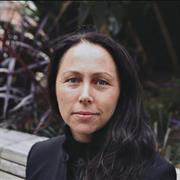
Ms. Ani Landau-Ward
Details
-
Department: School of GUSS
-
Campus: City Campus Australia
-
ani.landau-ward@rmit.edu.au
-
ORCID: 0000-0002-2039-2481
Open to
- Collaborative projects
About
Background:
Ani Landau-Ward is a Lecturer and Researcher at RMIT University, in Melbourne/Naarm, the traditional lands of the Kulin Nations. She holds an MA in both International and Community Development, and undergrad study in the Built Environment (Architecture) and is currently pursuing a part time Ph.D. in the field of Law and Society. She has more than ten years’ experience teaching undergraduate and Masters courses, and undertaking social and urban research with interdisciplinary teams at RMIT (see below). Her transdisciplinary scholarship focusses predominantly on the meeting of ownership and property with emerging administrative technologies, and governance regimes. Her academic practice is further enriched by an extensive background of professional work across built and natural environment fields, and social change industries. Including architectural and participatory design practice; project management (residential and commercial construction); arts and events management; community/social centre administration and organising (housing and food justice initiatives); horticulture (native land regeneration and conservation).
Publication:
Ms Landau-Ward's research has been presented internationally at the annual meetings of The Association for Law, Property, and Society (ALPS), and the International Academic Association on Planning, Law, and Property Rights (PLPR), as well as in numerous other academic forums. She has contributed scholarly writing to the volumes; Springer Global Encyclopaedia of Public Administration, Public Policy, and Governance, and Urban Asia’s: Essays on Futurity Past and Present with Jovis: Berlin. As well as in academic Journals, such as; New Zealand Journal of Asian Studies; and the two Taylor and Francis Journals Australian Geographer and Planning Theory and Practice. She has published a co-authored open access book with colleagues in Global Studies. She has worked extensively in collaboration with teams in the Centre for Urban Research (CUR) across multiple Australian Research Council (ARC), Australian Housing and Urban Research Institute (AHURI), and RMIT funded projects. As well as with associated communities of practice. And, she has contributed to, or co-authored a number of reports and parliamentary submissions, including a forthcoming (2024) final report with AHURI. Her parliamentary submissions have recently been comprehensively cited in a report published by the Economics Legislation Committee of the Australian Federal Parliament.
Teaching:
Alongside her research activities Ms Landau-Ward has taught across Undergraduate, Masters, and Honours level courses in the school of Global Urban and Social Studies (GUSS). With a particular focus on the Bachelor of Urban and Regional Planning and the Bachelor of International Studies programs. She is currently coordinating the Honours Capstone Research Project for the Bachelor of Urban and Regional Planning, and has previously taught, and developed, advanced courses in International Development Theory and Practice, Digital Sociology and Globalisation, Global Governance and International Law. As well as introductory courses in urban governance, sociology, human geography, critical social theory, globalisation, intercultural communication, global political economy, participatory methods, and social research. Her teaching is a major focus of her academic life, and she considers her responsibilities in the classroom as an educator and mentor very seriously indeed, striving to foster intellectually challenging, and highly inclusive learning communities. She has an open door, and inbox, policy for students, so... feel free to email!
Research collaboration:
Ms Landau-Ward has worked collaboratively in the Centre for Urban Research (CUR), and in the RMIT executive, across multiple Australian Research Council (ARC), Australian Housing and Urban Research Institute (AHURI), and RMIT funded projects, utilising predominantly qualitative methodological approaches including; yarning circles; focus groups; professional interviews; in depth interviews with members of the public; interpretive and discursive policy analysis; and both quantitative, and deconstructive textual analyses techniques. Topic focus' across these projects have included; the responsibilities and capacity of urban planners and policy makers to consider Indigenous perspectives and systems of law; responsibilities of geo-spatial professionals in the context of Treaty; the policy and governance implications of digital transformations in the housing sector; the emergence of built to rent as a housing typology in Australia and its associated operational systems and financial models; possible pathways towards opportunities for Indigenous land governance through local government; university governance and operations in the context of Treaty; justice and property relations vis a vis ‘urban greening’ practices.
Scholarly focus:
Her individual scholarly research is at a different scale. Her Masters research analysed the history (genealogy) and promotion of property rights institutions in the UN system. Her PhD project moves to critically examine recent technological changes, and the role of data, in transnational land administration practices and their governance. Methodologically this current work utilises frameworks developed in Science and Technology Studies (STS) and Jurisprudence of Jurisdiction and is situated as 'Law and Society' scholarship. Conceptually the project engages especially with philosophies of relationality and temporality, seeking to interrogate the new and renewed ways that materialities of land and housing law interrelate with the creation of international administrative and regulatory instruments, such as standards, in transnational fora, with a focus on questions of justice beyond distribution. She is *still* interested in hospitality and the ongoing mysteries and theological conundrums of sovereignty, and has been recently revisiting the likes of Benjamin, Derrida, Benhabib and W.E. Connelly. She welcomes contact and coffee with anyone interested in the intersections of these scholarly threads.
Research fields
- 480405 Law and society and socio-legal research
- 3304 Urban and regional planning
- 441007 Sociology and social studies of science and technology
- 440708 Public administration
- 440811 Political theory and political philosophy
- 33 Built environment and design